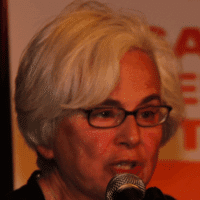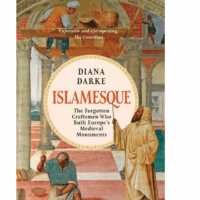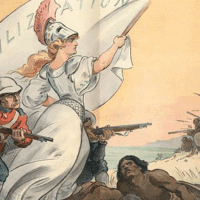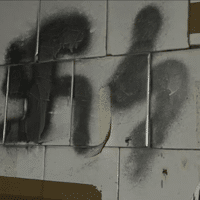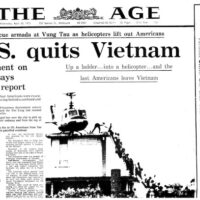-
Palestine and the Commons: Or, Marx and the Musha’a
In 1958 the assistant headmaster did the Bible reading at the morning assembly of the Karachi Grammar School (Pakistan), founded in 1848 by the Church of England. The reading from Acts 17:23 concerned St. Paul’s declaration upon seeing the Athenian monument to an unknown God. “What you worship but do not know—this is what I […]
-
Ellen Meiksins Wood facts for kids
Ellen Meiksins Wood (April 12, 1942–January 14, 2016) was an important American-Canadian thinker and historian.
-
The Start of Indigenous Agriculture in North America and the American Genocide
A recent paper in Science addresses an intriguing question: Did North America have settled agriculture before the arrival of Europeans? Or were the people in what would come to be known as North America still in the hunter-gatherer stage—unlike Mesoamericans, who had advanced civilisations, such as the Mayans, Aztecs, and the Incas? The answer is […]
-
Paul Sweezy facts for kids
Paul Sweezy helped start and edit the well-known magazine Monthly Review. People remember him most for his ideas in economics. He was one of the top thinkers in Marxian economics in the second half of the 20th century.
-
‘Islamesque: The Forgotten Craftsmen Who Built Europe’s Medieval Monuments’ – book review
Diana Darke’s brilliant history of medieval architecture reveals the extent of Islamic influence on the foundational phase of Western European art and buildings, finds Dominic Alexander.
-
Coalbrook: The Worst Mining Disaster in Africa
On the morning of January 21, 1960, 431 black and six white coal miners were entombed in a sudden collapse at Clydesdale Collieries near Coalbrook in Sasolburg, Free State Province.[1] The first rockfall took place at about 4:30 p.m. No one was killed or severely injured. While the rock still creaked and split, many of […]
-
From the Rockies to Stockholm: Ignoring the global crisis
A significant economic slowdown into stagnation, alongside still relatively high inflation; a crippling debt burden for the majority of the world’s population eking out a bare living; and an accelerating climate crisis—none of these issues will be discussed in the Rockies or in the Grand Hotel in Stockholm.
-
The Ancients: What can they teach us about our world and how to live in it?
Nature is an upper-case term here, defined as “a historically conditioned, polyvalent concept that, because it included humans, is necessarily an intrinsic concern to people living in both urban and rural environments.”
-
‘Christopher Hill: Life and Legacy of a Radical Historian’
Christopher Hill looms large in the landscape of British Marxist historiography, perhaps the indispensable historian of the English Revolution for generations on the Left.
-
ESSAY: ‘The Intellectual Origins of Imperialism and Zionism’, Edward Said, 1977
The zionist terrorist entity does not act alone. Over the 600 days of the genocide of the Palestinians, the United States has shipped 800 planeloads, carrying more than 90,000 tons of missiles, bombs, and military equipment, to the zionist entity.
-
Curriculum of Control: Capital’s Grip on U.S. History Education
The Classroom Is a Battleground Teaching U.S. history in a public high school today is a subversive act. In the face of mounting attacks on education, educators like me are caught between the curriculum we are allowed to teach and the truth students desperately need to understand. It is no exaggeration to say that the […]
-
Dr. Amos C. Brown calls out Smithsonian over returned artifacts, warns of Trump-era attacks on Black History
Dr. Brown said the museum had previously asked to keep the items permanently. “Now, all of a sudden, you can have it back,” he said. “There was no conversation. Just an email.”
-
Obliterating the truth about Nazi defeat
NAZI Germany was basically defeated by the Soviet Union. The sacrifice made by the Soviet people in defence of their country in that war was utterly unimaginable.
-
150 years since the Critique of the Gotha Programme
The Critique was in a short letter written by Marx 150 years ago. In 2025, it remains just as clear and relevant to understanding communism as the alternative to capitalism.
-
‘Black history is American history’
CounterSpin interview with Tanya Clay House on erasing history.
-
The Soviet feat and Trump’s ignorance
In commemoration of the Nazi surrender ending the second world war on May 8, 1945.
-
Sounding the alarm
In a March 31st article published by the North Carolina Black Alliance, the Smithsonian leader revisits history during an HBCU stop at Shaw University; Smithsonian Secretary Lonnie Bunch said, “I will probably get fired at some point,” Bunch said. “But I think the goal would be to, sort of, fight the fight as long as you can.”
-
Martin Luther King on capitalism in his own words
Throughout his life, Martin Luther King Jr spoke often and with vision about the nature of capitalism.
-
The Fall of Saigon, 1975: Fifty Years of Repeating What Was Forgotten
Part 1. On the Courage to Remember The first demonstration I ever went on was at the age of twelve, against the Vietnam War. The first formal history lesson I received came a few months later, when I commenced high school. That day the old history master, Mr. Griffiths, chalked what I later learned was […]
-
Vietnam: A victory never to be forgotten
It’s a historic anniversary that the U.S. ruling class and its allies around the world wish we would forget.


